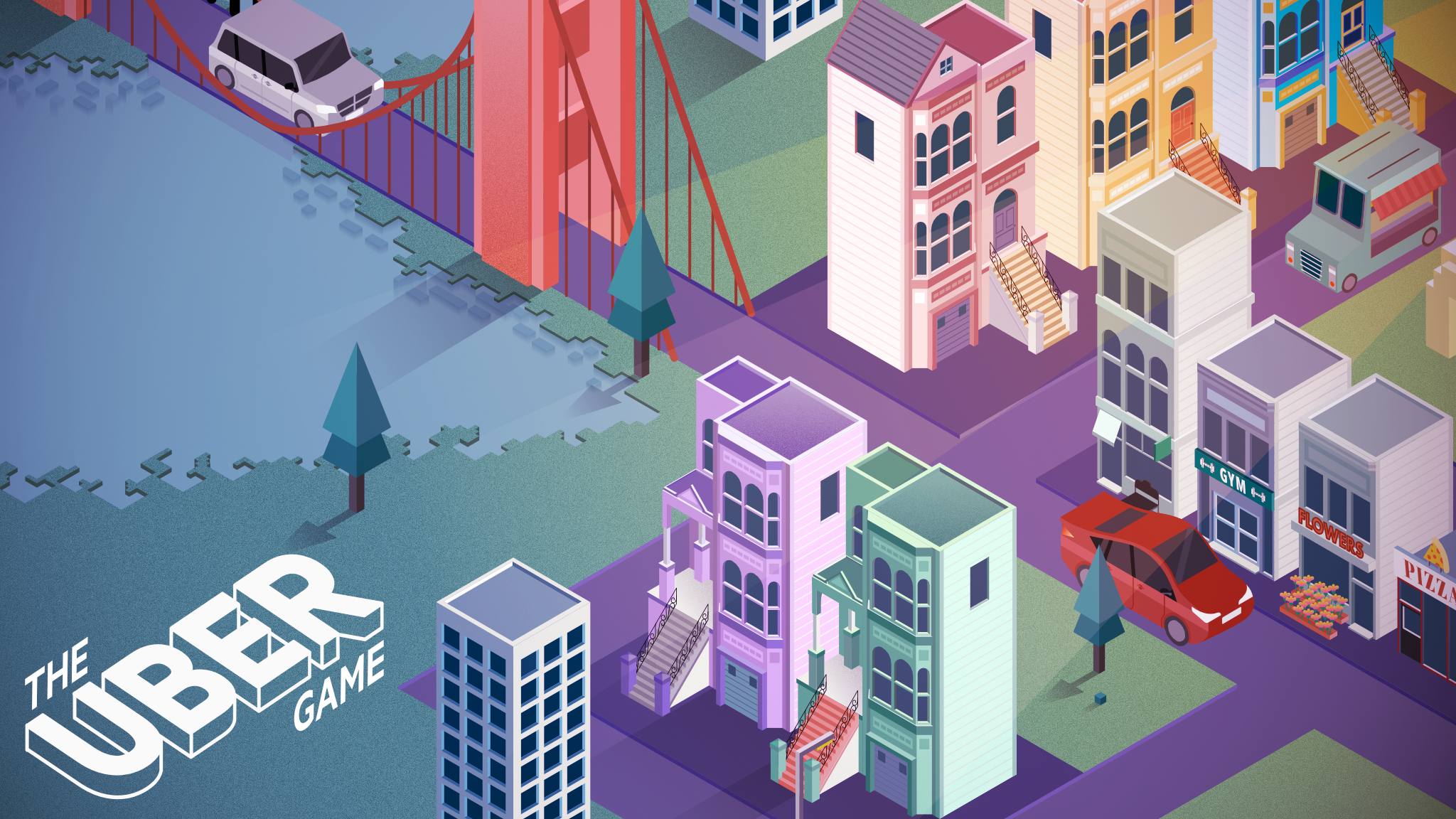“Can you make it in the gig economy?” The Financial Times created a game based on real uber driver experiences about the life of working as an uber driver. Their goal, presumably, is to highlight the struggles people face in this profession. I assumed this due to the article linked at the end of the game. However, I think that this game fails to accomplish their goal, due to the mechanics in place.
In this game, you play as an uber driver trying to cover your mortgage, making different choices at the start for your car, as well as while you are working during the day. But that’s all you do in the game; you make choices. With a proceduralistic way of thinking, these controls put forth a viewpoint that one has options in what they can do. A worker can decide which car to get, or if they want cleaning supplies to make their car nicer they can simply fork over the money to do so. One can start from literally nothing, and suddenly they can afford everything they need in life and more! However, I would argue that many workers don’t necessarily have this option.
One time I took an uber, where my driver was given a loaner car from Uber after getting into an accident. He told me all about his other struggles in life, much of them due to his Uber driver profession. Him, and many other drivers, don’t get a choice in the first place for their car, for their extra purchases such as cleaning products and a business license. This game makes the mistake that one has these options in the first place. It reflects a privilege of not needing to count your coins and actually decide between two needs, which is not the best reflection of society.


I agree that this game does not have a realistic approach in regards to demonstrating the true “struggle” within the Uber driver experience. There is definitely the privilege of having options to choose from with little concern about being able to afford them. When in reality sometimes there does not exist choice and the struggle is heightened. I would also say that this game solely focuses on the journey of the driver and choices being made to reach a financial goal but it’s hard to not reach. In other words, there is very little financial struggle in the game and instead, it focuses on the possibilities of what could be instead of directly showing us.
I never really thought about whether this game is realistic, but reading through your post has made me rethink this. And now, I have come to agree with your points. This game takes a very easy and more ideal approach. And for this reason, it isn’t a game that I would look forward to re-playing multiple times. On this note, I feel that making a larger-scale game with a more realistic approach would be quite fun to play (like a MyCareer in NBA2K). Adding other elements into game would allow for more diverse experience.
Reading your post really made me consider what their goal was meant to be and if they made it. If their goal was indeed meant to show the struggles of Uber drivers, I absolutely believe they failed. I think the game has a message more about capitalism than anything else. To me, I felt it spoke more to how much people can care more about money than themselves or their family, or how they sometimes have to choose between money and quality time for their family. But ultimately, it did not speak well enough to what Uber drivers have to deal with. I feel it might’ve worked better if it was a first person game that maybe it was a bit more eery or dim.